Мэтт Хейг - How to Stop Time
Здесь есть возможность читать онлайн «Мэтт Хейг - How to Stop Time» весь текст электронной книги совершенно бесплатно (целиком полную версию без сокращений). В некоторых случаях можно слушать аудио, скачать через торрент в формате fb2 и присутствует краткое содержание. Год выпуска: 2017, Издательство: Canongate Books, Жанр: Современная проза, на английском языке. Описание произведения, (предисловие) а так же отзывы посетителей доступны на портале библиотеки ЛибКат.
- Название:How to Stop Time
- Автор:
- Издательство:Canongate Books
- Жанр:
- Год:2017
- ISBN:нет данных
- Рейтинг книги:4 / 5. Голосов: 2
-
Избранное:Добавить в избранное
- Отзывы:
-
Ваша оценка:
- 80
- 1
- 2
- 3
- 4
- 5
How to Stop Time: краткое содержание, описание и аннотация
Предлагаем к чтению аннотацию, описание, краткое содержание или предисловие (зависит от того, что написал сам автор книги «How to Stop Time»). Если вы не нашли необходимую информацию о книге — напишите в комментариях, мы постараемся отыскать её.
How to Stop Time — читать онлайн бесплатно полную книгу (весь текст) целиком
Ниже представлен текст книги, разбитый по страницам. Система сохранения места последней прочитанной страницы, позволяет с удобством читать онлайн бесплатно книгу «How to Stop Time», без необходимости каждый раз заново искать на чём Вы остановились. Поставьте закладку, и сможете в любой момент перейти на страницу, на которой закончили чтение.
Интервал:
Закладка:
‘Yes,’ said Christopher, ‘of course.’
‘Well, I trust you are making young Tom feel at home.’
‘Oh yes, young Tom is just fine.’
Shakespeare let the oyster shell drop to the floor. He gave a quick smile. ‘Good.’
He pointed at me. ‘We need to move you forward, to the next bench. To hear the lute.’
I could see Christopher simmering. It was quite a delicious moment. I stood up and walked to my new position, as Hal budged along. I sat down. The inside of an oyster shell shone up at me from the dusty wood, like a watching eye.
‘Thank you, sir,’ I said to my employer.
Shakespeare shook his head, impassive. ‘I assure you it isn’t charity. Now, all of you, play your finest. Sir Walter is in attendance.’
The thing about the front bench was that it meant I had a good view. And the audience was always a show in itself. On a sunny afternoon thousands of people crammed into the place. Far more than you’d fit in the average theatre nowadays, even the Globe. There were often brawls and raucousness among the penny groundlings in the pit and the tuppenny benchers further back. If you had the three pennies needed for a bench and a cushion it seemed, somehow, that you thought yourself above such things, though I noticed that the bad behaviour returned again when you cast your eye up to the upper classes in the balconies.
In other words, you would get all types. Thieves. Troublemakers. Prostitutes. Pale-faced ladies with artificially blackened teeth to simulate the mark of luxury that was sugar-induced decay (a fact I always remember in our modern age of bottle tans and teeth whitening procedures).
There were many songs to enliven the crowd. I particularly enjoyed ‘Under the Greenwood Tree’, sung by a jolly blond actor I have forgotten the name of, who played the faithful Lord Amiens, one of the loyal men willing to go into exile in the French forest with the heroine Rosalind’s father, Duke Senior.
Who loves to lie with me,
And turn his merry note
Unto the sweet bird’s throat,
Come hither, come hither, come hither:
Here shall he see no enemy
But winter and rough weather .
In my mind, the French Forest of Ardennes became la Forêt de Pons that I had known as a child, where Maman and I would sometimes go. We would sit by a large sycamore tree, and she would sing to me there, as I watched falling sycamore seeds. A world far away from the stench and squalor of Bankside, or the smell of beer and shellfish and urine coming from the pit below. Yet the play stirred many other things in me. There were people being exiled, changing their identities, falling in love.
It was a comedy, but I found it quite troubling.
I think it was the character of Jaques that was the problem. He does absolutely nothing. I saw the play eighty-four times and I still can’t remember what he did. He just walked around, amid all the bright young optimists, being cynical and miserable. He was played by Shakespeare himself, and every time he spoke, the words got into my bones, as if warning me of my own future:
All the world’s a stage,
And all the men and women merely players;
They have their exits and their entrances,
And one man in his time plays many parts . . .
Shakespeare was a strange actor. He was very quiet – I don’t mean in volume, I mean in mannerisms and presence. Such the opposite of a Burbage or a Kemp. There was something very un-Shakespearean about Shakespeare, especially when he was sober. A quietness, on stage and off it, as though he was absorbing the world rather than projecting it.
One Thursday I came home and found Grace crying and Rose hugging her. It turned out that Mr Willow had given their space to a woman who gave him sexual favours. He had tried it on with Rose too. And had strong words for both her and Grace.
‘It will be all right. We can still work there. Just not in the spot we had.’
I felt such rage. A burning anger devoured me. The next day, before heading to Southwark, I went to the market and I found Mr Willow, and, in my juvenile stupidity, ended up hitting him and shoving him into the spice stall. He fell in an orange cloud of exotic New World aromas.
Grace and Rose were now banned from the market completely. And it was only the knowledge that we knew about his desire for sexual favours that prevented him from taking further action against us.
Rose cursed my hot-headedness, even as she fired back her own in my direction.
It was our first argument. I remember the fury more than the words. I remember her worry about what she would tell Mr Sharpe.
‘We can’t just pick fruit, Tom. We have to sell it. Where will we sell it?’
‘I will mend this. I broke this. I will mend it, Rose. I promise.’
So I spoke to Shakespeare about the chance of Rose and Grace working as fruit sellers in the theatre. I saw him, after a performance, walking through the crowds on the green, in front of the Queen’s Tavern. He was heading into the alehouse, on his own, ignoring a man who recognised him as he disappeared in through the door.
I followed him. I had been in the Queen’s before. My young face was no problem there. I found Shakespeare, jar in hand, in a quiet corner.
I was wondering how – and if – I should approach him when his hand raised and beckoned me over.
‘Young Tom! Take a pew.’
I went over and sat on the bench opposite him, with a small oak table between us. Two men further along the table were studiously engaged in a game of draughts.
‘Hello, Mr Shakespeare.’
A barmaid nearby was clearing up abandoned jars, and Shakespeare called over.
‘An ale for my friend here.’
She nodded, then Shakespeare reconsidered. ‘But you are from France, aren’t you? You probably like beer.’
‘No, sir. I prefer ale.’
‘Your wisdom calms me, Tom. They serve the greatest and sweetest ale in all of London in here.’
He sipped on his, closing his eyes. ‘Ale doesn’t live well,’ he said. ‘A week from today this will taste as sour as a knight’s breeches. Beer lasts for ever. All the hops, they say, causes its immortality. Ale is a more worthy lesson on life. You wait too long, and you will be saying farewell before you say good day. My father was once an ale taster. I have an education in it.’
The ale came. It was indeed sweet. Shakespeare filled and lit a pipe. Like most theatre types with access to money he was a fan of tobacco. (‘The indian herb works wonders for my ailments.’) He told me it also helped with his writing.
‘Are you writing a new play?’ I wondered aloud. ‘Am I keeping you from your writing?’
He nodded. ‘I am, and, no, you are not.’
‘Ah,’ I said. (There was no one like Will Shakespeare to make you feel tongue-tied.) ‘Good. And good.’
‘It shall be called Julius Caesar .’
‘So it is about the life of Julius Caesar?’
‘No.’
‘Oh.’
He sucked long on his pipe. ‘I hate writing,’ he said, through the spiralling smoke. ‘That is the truth of it.’
‘But you are very good at it.’
‘So? My talent is not worth a pot of ale. It signifies nothing. Nought. To be good at writing is to be good at pulling out your own hair. What use is a talent that pains you? It is a gift that smells to heaven and it smells of fox shit. You should rather be a whore in the Cardinal’s Hat than be a writer. My quill is my curse.’
I had, I sensed, caught him on a bad day.
‘I write because then I can make a play happen and then I and my shareholders can make money. And money is no bad thing. Money stops a man from going mad.’ He stared sadly a while. ‘I saw my father suffer when I was a boy, not so younger in years than you are now. He was a good man. He could never read but knew many a trade. Ale taster, a glover, then traded wool. And other things. He did well. We dined happily. Fowl every supper. He lost all his money. Loaned it with not a shilling in return once too often. And with a wife and seven children to keep it sent him into an antic disposition for a long time. He would shake and rock and fear the shadow of a mouse. That is why I write. I am just for ever running from madness.’ He sighed, glancing over at the draughts board a moment, as one of the men laid their piece down. ‘Now, you. What about you? Was your father mad too?’
Читать дальшеИнтервал:
Закладка:
Похожие книги на «How to Stop Time»
Представляем Вашему вниманию похожие книги на «How to Stop Time» списком для выбора. Мы отобрали схожую по названию и смыслу литературу в надежде предоставить читателям больше вариантов отыскать новые, интересные, ещё непрочитанные произведения.
Обсуждение, отзывы о книге «How to Stop Time» и просто собственные мнения читателей. Оставьте ваши комментарии, напишите, что Вы думаете о произведении, его смысле или главных героях. Укажите что конкретно понравилось, а что нет, и почему Вы так считаете.
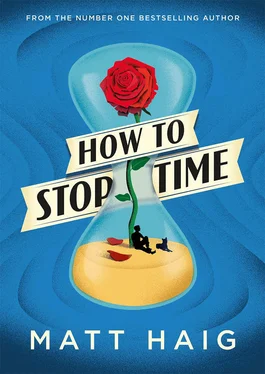
![Мэтт Хейг - Влюбиться в жизнь [Как научиться жить снова, когда ты почти уничтожен депрессией]](/books/28868/mett-hejg-vlyubitsya-v-zhizn-kak-nauchitsya-zhit-sn-thumb.webp)
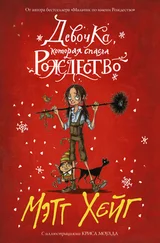

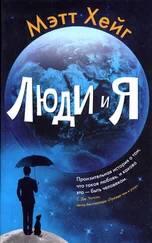

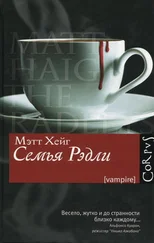
![Мэтт Хейг - Полночная библиотека [litres]](/books/388474/mett-hejg-polnochnaya-biblioteka-litres-thumb.webp)
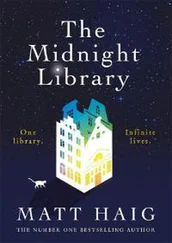
![Мэтт Хейг - Клуб призрачных отцов [litres]](/books/392121/mett-hejg-klub-prizrachnyh-otcov-litres-thumb.webp)

![Мэтт Хейг - Отец Рождество и Я [litres]](/books/421076/mett-hejg-otec-rozhdestvo-i-ya-litres-thumb.webp)
